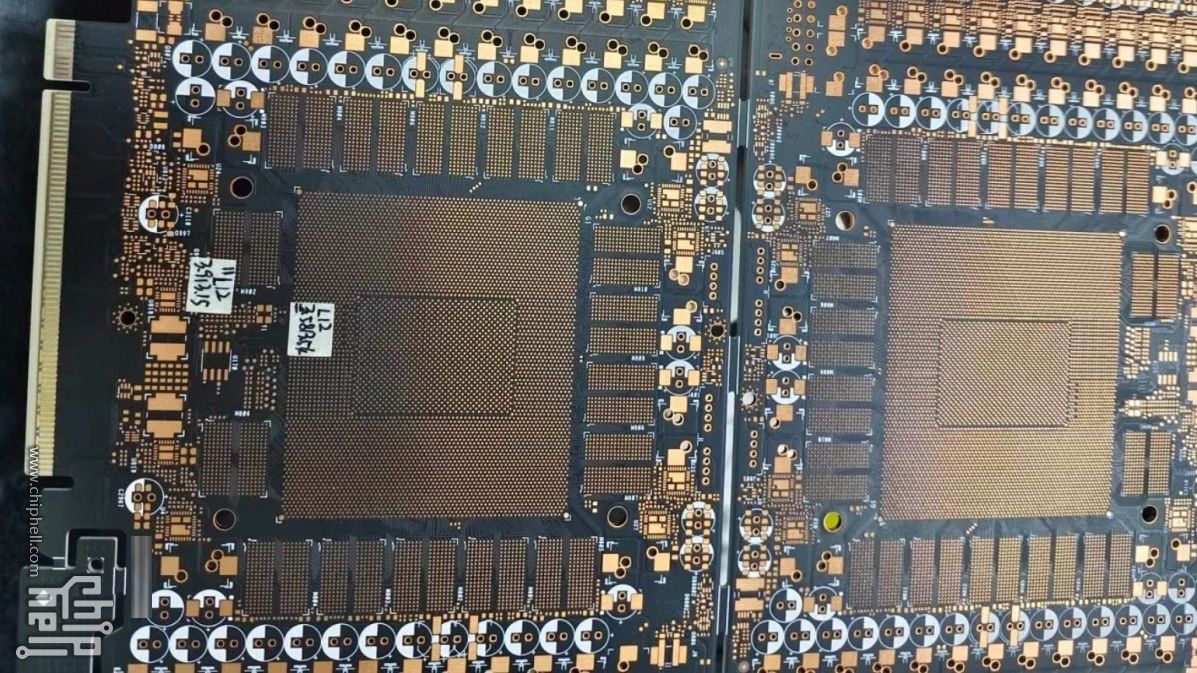World
Christmas at the Edge of the World

Located 947 miles from the North Pole in northwest Greenland, the Pituffik Space Base is the northernmost installation of the U.S. armed forces.
Once a hunting village for the Greenlandic Inuit, Pituffik lies in the Arctic tundra where winter temperatures plunge to -20°F. Separated by 75 miles from the nearest town, Qaanaaq, it is defined by its extreme isolation. In addition, during the long winter months, the sun never rises.
Not far from the geomagnetic North Pole, the U.S. Space Base is strategically placed for “space surveillance, satellite control, and early missile detection,” Father John Reutemann, an active-duty chaplain in the U.S. Air Force, currently stationed in Osan, South Korea, told the Register.
The base works with “early” missile detection, he explained, “because any missiles coming to the U.S. from Russia or China would likely fly over the Arctic.”
Father Reutemann noted, with only “about 150 U.S. military personnel stationed there for a one-year tour and about 450 others — Danish military, Canadian military and Greenlandic contractors” — plus a shortage of active duty Catholic military chaplains, the assigned chaplain at the base is a Protestant pastor.
However, for the past 25 years, the U.S. Air Force has flown a Catholic chaplain without parish commitments up to Pituffik for Christmas and Easter. The rest of the year, the few Catholics stationed at the base must endure without access to regular Masses or other sacraments.
Religious Fellowship
From July 2021 through July 2022, Col. Heather McGee, now retired from the U.S. Space Force, served as the installation commander for the base. As commander, she was responsible for the administration and security of the United States’ northernmost and the Air Force’s largest overseas military installation.
“I knew prior to arriving that Catholic Masses were limited to two times per year,” McGee told the Register.
Noting that Pituffik has but one Air Force chaplain assigned to the base conducting services every Sunday, McGee expressed her gratitude for the Protestant pastor who “was instrumental in ensuring that all faiths had a place to pray and worship.”
“There is a dedicated Catholic chapel where personnel practicing the faith can pray year-round, and we did have the ability to contact a priest whenever needed over the phone,” she explained.
According to the Code of Canon Law, if participation at Mass is impossible due to the lack of a minister, a celebration of the word of God is particularly recommended:
“If participation in the Eucharistic celebration becomes impossible because of the absence of a sacred minister or for another grave cause, it is strongly recommended that the faithful take part in a Liturgy of the Word if such a liturgy is celebrated in a parish church or other sacred place according to the prescripts of the diocesan bishop or that they devote themselves to prayer for a suitable time alone, as a family, or, as the occasion permits, in groups of families” (1248, 2).
“Having a faith and my belief in Christ our Lord was a key part in my tour there — it kept me connected with my family and allowed me to take care of my personnel,” said McGee.
Polar Night
Father James Hamel is an active-duty chaplain as well as a colonel in the U.S. Air Force. A priest of the Archdiocese of Newark, New Jersey, he currently serves as the command chaplain at Pacific Air Forces, based in Honolulu. But he also remembers his time in Greenland.
He told the Register, “I got a call from the Air Force chief of chaplains office asking me if I was able to cover at Pituffik Space Base over Christmas. I was free, so I jumped at the opportunity.”
“I expected it to be dark and cold,” added Father Hamel, “and it certainly was.”
Because of Pituffik’s proximity to the North Pole, the region covered in permafrost has 24 hours of darkness or what is called “Polar Night” from Oct. 31 to Feb. 10.
“Every few days, a faint purplish ribbon of light [could] be seen on the horizon, but only for an hour or two,” Father Hamel shared in a column for his archdiocese’s news site. “Then the sky returns to Bible-black.”
“It is so dark in northern Greenland in December that I couldn’t help but focus on Christ, the Light of the World,” Father Hamel told the Register. “And we were also so removed from the many conflicts in other parts of the world that it served as a reminder of what could be.”
“On Christmas Eve day, I went over to the chapel early to make sure the Roman Missal and lectionary were set to the appropriate pages,” Father Hamel continued. “When I saw where the ribbons were placed, it was disheartening to see that they hadn’t been moved since Easter.”
Despite the somber reality of a year devoid of Masses and sacraments, and the challenge of having to “learn to carry on with their faith in the absence of a priest,” both Father Hamel and Col. McGee highlighted how profoundly moving and joyful the Mass was.
“About 20 people attended the Mass,” McGee recalled, to celebrate the birth of Christ but also the first Mass at the base in more than eight months. After the Mass, the civilian contractors had prepared a traditional Danish Christmas feast following which military, contractors and civilians joined in singing traditional carols in Danish and English.
The island of Greenland is an autonomous territory of Denmark.
The Light
Father Reutemann, who celebrated Mass at the Pituffik Space Base last year, told the Register, “Since the Catholics at Pituffik only ever see a priest twice a year, they nevertheless gather in the Blessed Sacrament Chapel every Sunday to read the assigned readings, pray together and sing some hymns.”
While the Space Base’s chapel is nondenominational in nature, “meaning that it can be re-arranged and decorated for any religion,” Father Reutemann pointed out that there is a smaller room within the main chapel building designated as the “Blessed Sacrament Chapel,” given the Church’s requirement for a permanent place to keep the Blessed Sacrament.
According to Father Reutemann, about 24% of the U.S. Air Force is Catholic, meaning that each year, there are about 35 Catholics among the 150 U.S. military personnel.
“It’s harder to tell with the Danish, Canadians and Greenlanders, since those percentages are unknown,” he added. “Given that secularism is higher in those countries, it is likely less than the American 24%.”
Despite this, Father Reutemann added that around 50 people attended the midnight Mass, adding that he “was surprised at how many Danes showed up to midnight Mass, so I can only assume that it’s a big deal in Nordic Christian culture.”
Although there are only 50 registered Catholics — of which only approximately four are native Greenlanders — out of a population of 57,000, Christian traditions are widespread in Greenland, and there is “no Christmas without going to church in Greenland.”
In a reflection on his private blog, Father Reutemann shared how he preached on the Light of Christ shattering “not just the physical darkness of night but the metaphorical darkness of eternal death due to our sin.”
As there was no sunrise for the two weeks he spent at Pituffik, Father Reutemann said, “I pointed out how the moon, providentially, was almost full and the noticeable difference its light made when walking outside.”
He added, “But as all Space Force nerds know, the moon doesn’t have its own light; it is simply reflecting the light of the sun. Perhaps we, I encouraged, could be like the moon by simply reflecting the light of the Son in the midst of so much darkness, physical or otherwise.”
Christ in the Arctic
“Christmas season helps to celebrate the Light of Christ even through times of total darkness,” McGee said. “As Catholics we rely on the light of Christ to get us through the most challenging times.”
Reflecting on “ways to bring Christ and his light to the Arctic,” McGee shared a special tradition at the Space Base consisting of reaching out to the Greenlandic communities surrounding Pituffik: Operation Julemand — meaning “Santa Claus” in Greenlandic.
“Operation Julemand is an annual program that gives back to the local Greenlandic community,” McGee explained, “organized and supported solely by personnel stationed at Pituffik. It is the largest community outreach event conducted by the base.”
Started as a onetime event in 1959 to foster goodwill and holiday cheer with the Greenlandic communities surrounding the base, Operation Julemand has been held for more than 60 years. Qaanaaq has a population of approximately 600 souls.
“Through generous donations by Americans, Danes, Canadians and Greenlanders, the program provides gifts to the children in local villages,” said McGee. “The gifts are delivered by base personnel dressed as Santa and elves via a helicopter donated by Air Greenland. It is a wonderful event that village children look forward to every year and another way to bring Christ and his light to the Arctic.”
Blessing, Challenge
As Father Reutemann explained, “Getting to celebrate the sacraments, especially during meaningful liturgical seasons like Advent and Christmas, is both a blessing and a challenge.”
“On the one hand, I was blessed to be able to travel somewhere new and minister to those who were in need since they were separated from their families, friends and home parishes. On the other hand, it can be challenging to celebrate the sacraments in such a remote location where you don’t always have enough missals, hymnals, decorations or other external trappings.”
Father Reutemann noted that he experienced a certain sorrow over not being able to celebrate the feast the way he was used to, “with a full orchestra to complement our usual choir and with additional altar servers to swing the incense.”
“At Pituffik, we had no choir, much less an orchestra; I had one altar server, and there was a single tree,” Father Reutemann added. “Nevertheless, it was one of the most meaningful Christmas Masses I have ever celebrated.”









